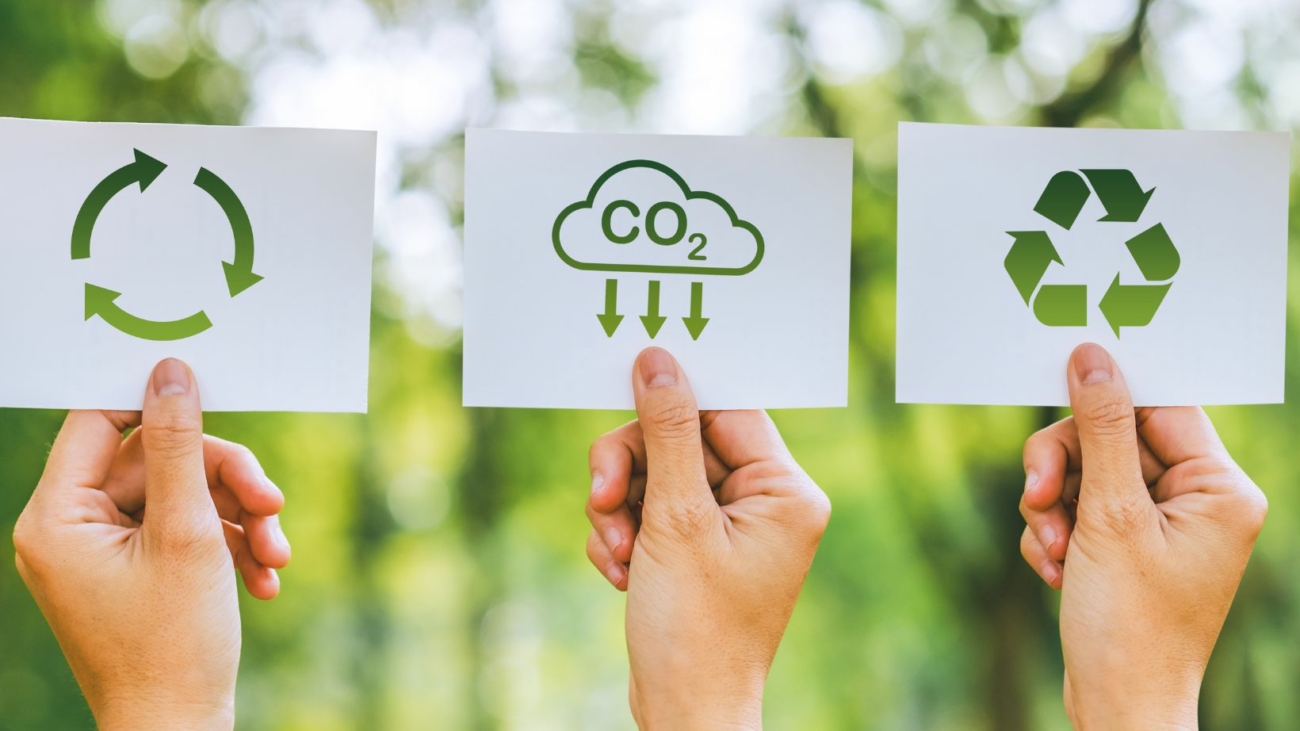Key Takeaways
- Growing Importance of Sustainability: Colleges are increasingly prioritizing sustainability programs to reduce their carbon footprints and prepare students for global environmental challenges.
- Academic and Hands-On Learning: Sustainability initiatives include academic courses and practical projects that equip students with essential knowledge in areas like renewable energy and sustainable agriculture.
- Community Engagement: Partnerships with local organizations enhance students’ experiences and promote environmental awareness, fostering a sense of social responsibility and community involvement.
- Student-Led Initiatives: Student organizations play a critical role in advocating for sustainable practices on campus, driving engagement and influencing institutional policies.
- Economic Benefits: Implementing sustainability programs can lead to significant cost savings for colleges while preparing graduates for careers in a growing green job market.
- Challenges and Solutions: Limited funding and community engagement pose challenges, but collaboration with stakeholders and innovative funding strategies can enhance the success of sustainability initiatives.
As environmental concerns grow, colleges across the nation are stepping up with innovative sustainability programs. These initiatives not only aim to reduce carbon footprints but also prepare students to tackle pressing global issues. By integrating sustainability into their curricula and campus operations, colleges are fostering a culture of environmental responsibility among the next generation of leaders.
Students are increasingly drawn to institutions that prioritize sustainability, recognizing the importance of eco-friendly practices in today’s world. From renewable energy projects to waste reduction strategies, these programs offer hands-on experiences that empower students to make a real difference. As they engage with sustainability efforts, they’re not just learning; they’re becoming active participants in the movement toward a greener future.
Sustainability Programs College
Sustainability programs in colleges encompass various initiatives designed to foster environmental stewardship and awareness. These programs often include academic courses, campus-wide sustainability initiatives, and partnerships with local communities.
Academic Courses
Academic courses facilitate understanding of sustainability principles. They cover topics like renewable energy, sustainable agriculture, and environmental policy. Institutions offer degrees and certifications in fields such as environmental science, sustainability management, and urban planning. Students engage in projects and research, enhancing practical knowledge.
Campus Initiatives
Campus-wide initiatives reduce waste and promote eco-friendly practices. Many colleges implement recycling programs, energy-efficient buildings, and sustainable dining practices. Green building standards, such as LEED certification, encourage energy conservation and sustainable materials. Programs often focus on reducing water usage, promoting alternative transportation, and creating green spaces.
Community Partnerships
Community partnerships enhance sustainability efforts. Colleges collaborate with local organizations to promote environmental education and outreach. Students participate in internships and volunteer opportunities, applying classroom knowledge in real-world settings. These partnerships strengthen community ties while fostering a culture of sustainability.
Student Involvement
Student involvement plays a crucial role in the success of sustainability programs. Many colleges establish student-led organizations focused on environmental advocacy. These groups organize events, campaigns, and awareness programs, building a vibrant community around sustainability. Activism and peer engagement motivate broader participation and influence campus policies.
Metrics and Evaluation
Metrics and evaluation assess the effectiveness of sustainability programs. Colleges track progress through sustainability reporting, measuring reductions in greenhouse gas emissions, energy consumption, and waste generation. Regular assessments ensure transparency and accountability, allowing institutions to adapt strategies as necessary.
Sustainability programs in colleges reflect a commitment to environmental responsibility and social equity. By integrating sustainability into every aspect of campus life, colleges prepare students to become informed leaders in a rapidly changing world.
Importance of Sustainability in Higher Education

Sustainability plays a vital role in higher education, shaping the way institutions operate and influence society. These programs contribute to a healthier planet, an improved economy, and a stronger sense of community.
Environmental Impact
Sustainability initiatives significantly reduce environmental footprints within campuses. Colleges adopt practices such as solar energy generation and green building designs, which significantly lower greenhouse gas emissions. For instance, the implementation of energy-efficient appliances can decrease energy consumption by up to 30%. Additionally, campuses that embrace robust recycling programs often divert over 50% of their waste from landfills. This collective effort not only fosters environmental stewardship among students but also educates them on the importance of sustainable practices in everyday life.
Economic Benefits
Sustainability programs in colleges lead to considerable economic advantages. Institutions that invest in green technology often experience lower operational costs due to reduced energy consumption. Research indicates that institutions can save $1,000 to $4,000 annually for every energy-efficient building on campus. Furthermore, programs that promote sustainable dining and local sourcing support regional economies, creating jobs and stimulating growth. Graduates of sustainability-related programs often emerge as competitive candidates for green jobs, contributing to a sustainable labor market.
Social Responsibility
Colleges adopting sustainability programs demonstrate a commitment to social responsibility. They create inclusive environments that engage students in solving local and global challenges. Programs encourage volunteerism and community partnerships, promoting collaboration on sustainability projects aimed at enhancing local well-being. By integrating social equity into their sustainability initiatives, colleges prepare students to be conscientious citizens who understand the intersection of environmental, economic, and social systems.
Types of Sustainability Programs Offered
Colleges offer various types of sustainability programs to engage students and promote environmental awareness. These programs include degree offerings and certification options that prepare students for careers in sustainability.
Degree Programs
Colleges provide degree programs specifically focused on sustainability, encompassing bachelor’s and master’s degrees. Common degree fields include:
- Environmental Science: Focuses on ecological systems, conservation, and sustainability practices.
- Sustainability Management: Covers management strategies for sustainable business practices and environmental impact assessment.
- Renewable Energy Studies: Offers knowledge on solar, wind, and other renewable energy sources.
Students benefit from interdisciplinary approaches, combining environmental science, economics, and policy studies. Internship opportunities often accompany these programs, providing practical experience in sustainability initiatives.
Certification Programs
Certification programs provide specialized knowledge in sustainability topics, designed for both current students and professionals seeking to enhance their skills. Key certification types include:
- Green Building Certifications: Focus on sustainable construction practices and LEED (Leadership in Energy and Environmental Design) standards.
- Sustainable Agriculture Certificates: Educate students on eco-friendly farming techniques and food sources.
- Energy Efficiency Certifications: Train individuals in strategies for reducing energy consumption and optimizing resource use.
These certifications typically require fewer credits and can be completed in a shorter timeframe, making them accessible for those looking to advance their understanding of sustainability without committing to a full degree program.
Successful Examples of College Sustainability Programs
Many colleges showcase successful sustainability programs that demonstrate innovative approaches to environmental stewardship.
Case Study: University Initiatives
Several universities have implemented comprehensive sustainability initiatives that significantly reduce their carbon footprints. For example, the University of California, Berkeley, has launched programs focused on waste reduction, achieving a diversion rate of over 70% through rigorous recycling and composting efforts. Similarly, Arizona State University has made strides with its carbon neutrality goal set for 2025, utilizing solar panels and energy-efficient systems to meet energy demands. Programs like these not only lower greenhouse gas emissions but also contribute to a culture of sustainability on campus.
Case Study: Student-Led Efforts
Student-led organizations play a pivotal role in advancing sustainability on college campuses. At the University of Michigan, the student group Sustainability Without Borders initiates projects that promote renewable energy and sustainable practices locally and globally. Similarly, students at Middlebury College actively participate in the Eco-Representative program, which empowers them to advocate for ecological practices within residence halls and academic departments. These grassroots efforts engage students in practical solutions, fostering a community dedicated to environmental issues and education.
Challenges and Opportunities for Sustainability Programs
Sustainability programs face various challenges while presenting significant opportunities for growth and improvement.
Funding and Resources
Limited funding often hinders the development and expansion of sustainability programs at colleges. Many institutions struggle to allocate sufficient financial resources to implement comprehensive initiatives. Grants, sponsorships, and partnerships can help bolster funding. Moreover, leveraging alumni donations and corporate sponsorships can provide additional support for projects. Colleges can identify collaborative opportunities with local governments and NGOs, enhancing resources for sustainability efforts and driving innovative solutions.
Community Engagement
Fostering community engagement is crucial for sustainability program success. Colleges often encounter difficulties in building sustainable partnerships with local stakeholders. By actively involving community members through workshops and outreach initiatives, colleges can enhance participation and support for sustainability goals. Establishing collaborative events encourages knowledge sharing, while integrating service-learning components into academic courses allows students to directly engage with local environmental issues. Opportunities for internships and volunteer programs can create synergies between students and community organizations, strengthening the impact of sustainability measures on both campus and surrounding areas.
Fostering Sustainability Through Innovative
Colleges are at the forefront of fostering sustainability through innovative programs that not only reduce environmental impact but also prepare students for future challenges. By integrating sustainability into their curricula and campus operations, these institutions create a culture of environmental stewardship.
The emphasis on student involvement and community partnerships enhances the effectiveness of these initiatives. As colleges continue to evolve their sustainability efforts, they pave the way for a generation of conscientious leaders equipped to tackle global issues. With a commitment to eco-friendly practices, colleges are shaping a more sustainable future for all.
